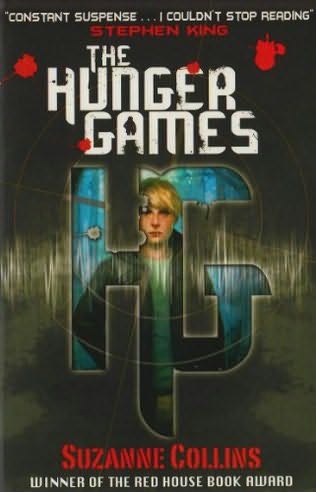
Suzanne Collins returns to the (electronic) pages of Anbaric Lights with Catching Fire, the sequel to her best seller The Hunger Games, and book two of an eventual trilogy. As I said in my previous review (see link above, I do so love tooting my own horn!), the subject matter and themes brought forth in this series are a little mature for my usual target audience. I recommend this series highly, but due to some of the content, I think it's mainly appropriate for middle schoolers and beyond.
In order to effectively review Catching Fire, I'll have to release some mild spoilers concerning The Hunger Games, so if you have not read book one of the series, then read on at your own peril...
Catching Fire returns the reader to the distopian future created by Collins in The Hunger Games. The United States is no more. Instead, the brutal government of the Capital (Pelem) rules oppressively and totally over 12 separate and distinct districts. Each district is responsible for one product: coal, fish, lumber, electronics, etc..., and each district is kept in total isolation from the other. "Peacekeepers," soldiers from the capital, make sure that the residents of each district stay in line.
75 years ago, an uprising by the districts was brutally crushed by the capital (including the total annihilation of District 13), and as a consequence the Hunger Games were created. In these games, once a year each district sends both a male and a female tribute to the games. The tributes are then forced to kill each other off until only one is left. These games are designed to subjugate and humiliate the Districts, and to remind them of their subservience to the capital.
For the first time ever, there were two champions in the events of The Hunger Games. Katniss Everdeen and Peeta Mellark, both from District 12, were declared co-winners after manufacturing a tragic love story for themselves. Of course, this romance is only a fabrication for Katniss, Peeta is truly, deeply, and hopelessly in love with her. Since this lie spared their lives, they are forced to continue living it as they attempt to return to their former lives.
They find themselves celebrities on a whirlwind tour of the districts, but Katniss has intentionally become a symbol of revolution throughout the districts. As the games have always had only a single winner, any deviation is a slight to the power and influence of the capital.
Her Mockingjay (a kind of bird) pin has become the symbol for all of those who hope to end the oppression of the capital once and for all. Of course those in control, lead by the deliciously evil and malevolent President Snow will not go down easily. Uprisings are suppressed with violence, and the capital has sinister plans in store for not only Katniss and Peeta, but also for all former Hunger Games champions as the 75th anniversary of the games draws nearer.
Katniss and Peeta must work desperately to maintain the illusion of their love (Katniss is torn between Peeta and Gale, her friend from back in District 12) in order to protect their friends and family from the wrath of the government, but as the ministrations of the capital grow ever more ruthless, the sparks of revolution glow ever brighter and the reader finally gets the sense of where the title of the book comes from.
Will Katniss and Peeta be able to protect there loved ones? Will unrest blossom into full on revolution? What cruel tricks await the participants of the 75th annual Hunger Games? Gentle reader, you'll just have to read Catching Fire to find out.
Suzanne Collins Official Site
